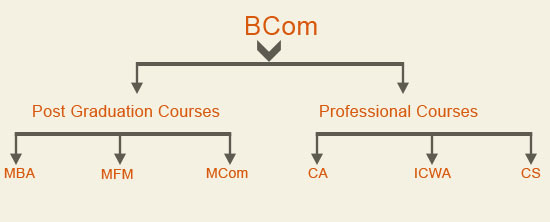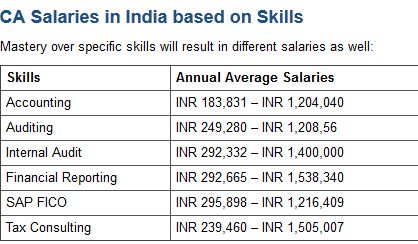Guide to preparing for CA Final Exams – Part 1

Guide to passing CA Exams
“Believe you can and you are halfway there.”
Examination and stress go hand in hand in most of the students’ life. Irrespective of the level and field of examinations, every student looks out for shortcuts and easy ways for preparation and attainment of the goals.

CA Final exam preparation is considered to be a tough one however having the appropriate strategy in place can make it easy to clear the same. Here we share with you a quick guide to prepare for your CA final examination.
Group 1
The Group 1 consists of:
- 2 theory subjects – Law and Audit; and
- 2 practical subjects – FR and SFM
Points to Remember for CA Final Exam Preparation
“To reach the top,
You don’t have to be a bookworm,
Jus’ stay cool “n” give your BEST!!!”
Corporate and Allied Law
- This subject is constituted broadly of two parts – The Companies Act and Allied Law
- The Company Law amendments are extremely important so be well versed with them
- Topics related to director’s appointment, powers and remuneration cover most of the company law syllabus so prepare them thoroughly
- Other topics that are frequently asked in 4-8 marks questions are Compromise, arrangements and amalgamation, winding up, producer companies and E-Governance
- Allied law has 20-30 marks weightage in exams thus it is better to carefully study topics such as SEBI Act, FEMA, interpretation of statutes, deeds and documents
Financial Reporting (FR)
- FR is another name given to accounts since the CA Final Institutes focus more on the reporting part
- Major topics like holding, amalgamation and valuation of goodwill are expected to form an integral part of the exams with a weightage varying from 8-16 marks
- These are the most time consuming ones – both at the time of exams and preparation so be extra cautious while managing time studying them
- One question can be left in choice and it is advisable to choose from amalgamation or holding as they both appear as 16 marks question
- You can still score good marks by preparing for other topics since out of 116 marks, 84 marks are covered by topics other than holding and amalgamation
- Considering the past trends, the institute focuses more on standards such as revenue recognition, contingencies and events occurring after balance sheet date, effects of changes in foreign exchange rate, employee benefits, borrowing costs, related party disclosures, impairment of assets, provisions, contingent liabilities and contingent assets. Questions on these topics carry 4-8 marks in either numerical or practical category however even if the question is numerical, no AS question should be answered without theoretical explanation
- Coming to IND AS, only 3 i.e. Ind AS 32, Ind AS 107 and Ind AS 109 belonging to financial instruments are important from exam point of view i.e. you can expect both theory and numerical question or any one carrying 8-12 marks in the final exams
- Small topics like share based payments, mutual funds, Non-banking finance company, merchant banking, value added statement, economic value added and human resource reporting from preparation point of view takes around 1 hour each topic and from exam point of view covers almost 20-30 marks
Strategic Financial Management
- Most important topics of SFM are capital budgeting, Foreign Exchange and capital market covering more than 50 marks in the complete paper
- Every sub topic is equally important from both numerical and theory point of view (the last theory question of 16 marks is generally from these topics only)
- Also be prepared for one numerical question from topics like Mergers, acquisitions and restructuring, leasing decision and dividend decision, mutual funds and portfolio management
Advance Auditing and Professional Ethics
- Amendments hold importance in audits and have an approx weightage of 8-16 marks in the exams
- Professional ethics is an easy topic and can help you score a straight 16 marks
- You need not cover all the Standards of Auditing (SA). The important one are SA 220, 240, 250, 300, 330, 501, 550, 570, 600, 700, 705, 706, 800, 805, SAE 3400, SAE 3402 and SRS 440
- Chapters like audit of banks, general insurance, Non-banking financial companies, Company audit and peer review also cannot be ignored from exam point of view.
The above guide does not, in any way, promote incomplete preparation for examinations. It is always advisable to start preparing from the initial stages in order to ensure that the whole syllabus can be entertained before the final exams.


 Bankruptcy Lawyer in Pittsburgh
Bankruptcy Lawyer in Pittsburgh  3 Ways to Get Help With Your Legal Case
3 Ways to Get Help With Your Legal Case  Guide to preparing for CA Final Exams – Part 2
Guide to preparing for CA Final Exams – Part 2  MBA and ICWA- Both has its own significance. Which one is good for career- MBA or ICWA?
MBA and ICWA- Both has its own significance. Which one is good for career- MBA or ICWA?  How Much You Can Earn As A Cost and Works Accountant?
How Much You Can Earn As A Cost and Works Accountant?  Your ultimate guide for CA campus interviews
Your ultimate guide for CA campus interviews  ITAT Amritsar: No Section 269SS Violation for One-Time Cash Payment Before Sub-Registrar
ITAT Amritsar: No Section 269SS Violation for One-Time Cash Payment Before Sub-Registrar  Tax Officials Unleash Digital Dragnet: How New Raid Powers Redefine Privacy, Property Rights in India and likely to Fuel Corruption
Tax Officials Unleash Digital Dragnet: How New Raid Powers Redefine Privacy, Property Rights in India and likely to Fuel Corruption  Income Tax Department Rewards for Reporting Tax Evasion: A Comprehensive Guide
Income Tax Department Rewards for Reporting Tax Evasion: A Comprehensive Guide  Forfeiture of Gratuity by Employer- What are the Remedies for an employee- Can employer be challenged?
Forfeiture of Gratuity by Employer- What are the Remedies for an employee- Can employer be challenged?